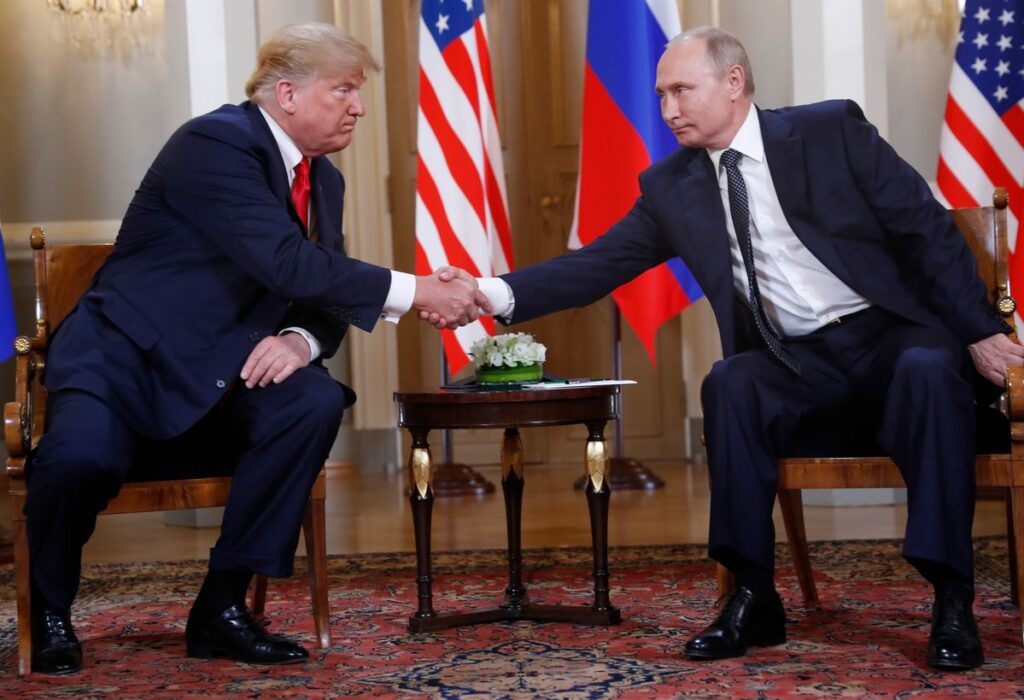Aug 04, 2025
Moscow — A new diplomatic storm erupted this week after Russia issued a sharp warning to former U.S. President Donald Trump over what it called “reckless nuclear rhetoric.” The reaction comes in the wake of Trump’s provocative statement suggesting he had ordered the deployment of nuclear-powered submarines near Russian waters during his presidency.
The Russian Foreign Ministry, speaking via official channels, urged the United States to be “very, very careful” when discussing nuclear capabilities in public, especially in light of the ongoing tensions surrounding Ukraine and NATO’s presence in Eastern Europe.
Donald Trump

What Did Trump Say?
In a campaign speech earlier this week in Ohio Donald Trump, who is the Republican frontrunner for the 2024 presidential election, claimed that during his term he had authorized U.S. patrol “very close” to Russian territory with nuclear submarines. He implied this move had deterred Russian President Vladimir Putin from further aggressive actions.
“Putin saw what we had off the coast. He knew we weren’t playing games,” Donald Trump told the crowd. “We had submarines, the most powerful in the world, lurking where he didn’t expect.”
Though Donald Trump did not provide specific dates or locations, his comments stirred immediate concerns in Moscow, prompting swift diplomatic response and international commentary.
Russia’s Stern Reaction
Responding on Thursday, Russian Foreign Ministry spokesperson Maria Zakharova criticized Donald Trump’s comments as “irresponsible” and said such claims, whether true or not, contribute to an already fragile security environment.
“Any nuclear rhetoric, particularly from a former or current leader of a nuclear power, must be treated with the utmost caution,” Zakharova stated. “It risks miscalculation and escalation.”
She added that the Kremlin was reviewing available intelligence to verify whether U.S. submarines had, in fact, breached any internationally accepted boundaries during the Donald Trump administration. While Russia did not confirm any violations, the mention of such operations set off alarm bells in military and diplomatic circles alike.
Expert Analysis: Why It Matters
Security experts view Trump’s comments as another example of how nuclear weapons are being used as political tools rather than instruments of last resort. Jawaharlal Nehru University professor of international relations Dr. Rajiv Menon stated:
“This is not just about U.S.-Russia posturing. Nuclear threats have cascading effects globally. Even a rhetorical mention by someone like Trump can disrupt strategic stability.”
According to Dr. Menon, the timing is particularly concerning. Russia and NATO have been increasingly hostile in rhetoric and posture since the Ukraine invasion in 2022. Meanwhile, U.S. President Joe Biden has emphasized maintaining strategic arms control treaties like New START, which Trump had been criticized for weakening.
Donald Trump
Political Divide in the U.S.
Within the United States, Trump’s remarks have once again divided political leaders. Republican allies praised his assertiveness and claim that his nuclear diplomacy kept adversaries “in check.” However, Democrats and some defense officials expressed concern over revealing operational strategies involving nuclear assets.
In an interview with CNN, former CIA Director Leon Panetta stated:
“You never, ever reveal the specifics of a nuclear deployment, not even after the fact. It compromises strategy, risks escalation, and erodes trust with allies.”
Even among Trump’s military advisors, there appears to be discomfort. A retired Navy admiral who served under Trump’s administration stated anonymously that such deployments are usually classified and only discussed under strict national security protocols.
Fallout on International Fronts
Russia’s outrage and Trump’s remark are more than just news stories.Several European diplomats expressed alarm that such statements could derail upcoming nuclear arms control talks scheduled between Washington and Moscow.
The United Nations’ Office for Disarmament Affairs (UNODA) released a brief noting the need for “responsible nuclear discourse,” especially with growing tensions among nuclear states including China and North Korea.
India and Pakistan, long-time nuclear rivals, are also watching developments closely. A senior Indian defense analyst noted that inflammatory remarks by global leaders can embolden other nations to adopt more aggressive nuclear postures.
Donald Trump
What Happens Next?
As Trump continues his 2024 presidential campaign, analysts expect more such remarks highlighting his “tough on Russia” legacy. Whether those claims are factual or politically motivated, they pose a diplomatic challenge for the Biden administration, which must balance domestic politics with global strategic stability.
Meanwhile, Russia’s response signals that Moscow remains deeply sensitive to any mention of U.S. military power near its borders — especially involving nuclear assets.
NATO has so far refrained from commenting directly, though internal briefings indicate alliance leaders are monitoring the situation.When questioned about “former leadership statements or historical operational details,” the Pentagon refused to answer.
Conclusion
The latest flare-up between the U.S. and Russia serves as a potent reminder of the power — and danger — of nuclear rhetoric in global politics. While Donald Trump’s supporters view his comments as evidence of bold leadership, critics argue they jeopardize decades of arms control progress.
With tensions in Eastern Europe still simmering and global nuclear agreements under pressure, the world can ill afford even rhetorical instability. And as campaigns heat up in the U.S., every word from leaders past and present carries weight — especially when it involves the world’s deadliest weapons.
Donald Trump
External Link:
Be Very Careful With Nuclear Rhetoric: Russia After Trump’s Submarine Order – NDTV
For more global developments, visit our World News section.
